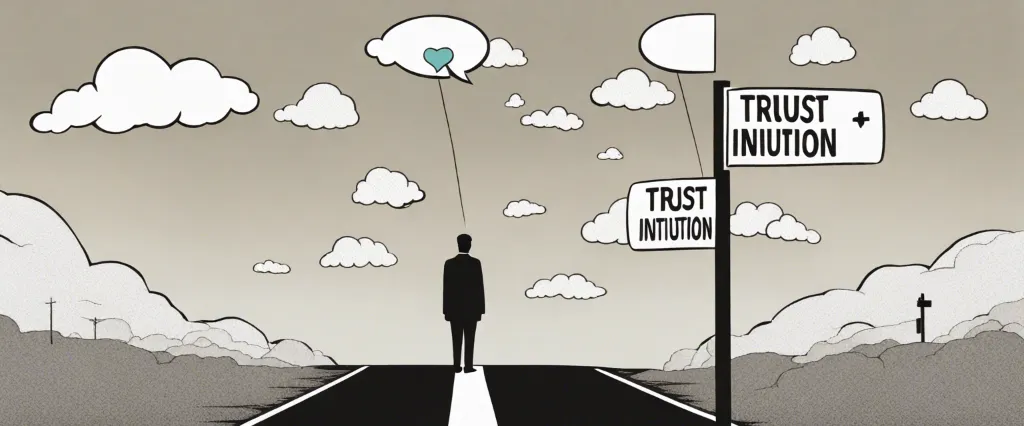
In today’s fast-paced world, the pursuit of personal growth and self-improvement has become a prevalent focus for many individuals. Countless books have been written on the subject, each offering a unique perspective and insights into the human condition. Among the vast array of self-help literature, two prominent works stand out as remarkable contributions to the genre: “You Can Heal Your Life” by Louise L. Hay and “Your Erroneous Zones” by Wayne Dyer.
Both books delve deep into the core of human emotions, thoughts, and beliefs, analyzing the factors influencing our lives and offering methodologies for positive change. While they approach the subject matter from different angles and emphasize distinct concepts, both authors share a common goal of empowering readers to overcome obstacles and unlock their full potential. As we embark on this comparative study, we will unravel the underlying principles and techniques proposed by Hay and Dyer, examine their similarities and differences, and evaluate their impact on fostering personal growth and transformation.
Published in 1984, “You Can Heal Your Life” by Louise L. Hay quickly gained recognition for its revolutionary approach to self-healing and transformation. Hay, a renowned metaphysical author and speaker, introduces a powerful thesis: our thoughts and beliefs have a direct influence on our overall well-being. She argues that various physical and emotional ailments stem from unresolved emotional issues and negative thinking patterns. With a compassionate and empathetic tone, Hay guides readers through a transformative journey to understand the power of self-love, affirmations, and forgiveness. By adopting a holistic approach to healing, encompassing mind, body, and spirit, Hay emphasizes the importance of self-awareness and taking responsibility for our own lives.
In stark contrast, Wayne Dyer’s “Your Erroneous Zones,” published in 1976, explores the concept of self-imposed limitations and erroneous thinking patterns that hinder personal growth. As a prominent self-help author and motivational speaker, Dyer contends that most individuals unconsciously sabotage their own happiness through self-defeating thoughts and behaviors. Drawing inspiration from various psychological, philosophical, and spiritual teachings, Dyer presents practical strategies to liberate oneself from self-doubt and transform limiting beliefs into empowering ones. Emphasizing the power of choice and the need to live in the present moment, he encourages readers to take control of their lives and align their thoughts with their desired outcomes.
While Hay emphasizes the connection between emotional well-being and physical health, Dyer focuses on breaking free from mental constraints by challenging ingrained beliefs. Both authors employ different methodologies to achieve self-transformation, yet they share a common thread in empowering readers to take charge of their lives. Through introspection, self-reflection, and the power of positive thinking, their books serve as guidebooks for readers seeking growth, healing, and a more fulfilling existence.
In the coming chapters, we will explore the key concepts, core principles, and practical exercises put forth by Hay and Dyer. By delving into their unique approaches and examining the impact of their teachings, we aim to shed light on their effectiveness in promoting personal growth, healing, and self-realization. Through this comparative study, readers will gain valuable insights, tools, and perspectives to navigate the complexities of their own lives and shape their destinies. Ultimately, our exploration will enable us to appreciate the diverse yet compatible philosophies offered by Hay and Dyer, as we uncover the transformative power hidden within their words.
Brief Summary of Two Books
You Can Heal Your Life by Louise L. Hay
“You Can Heal Your Life” is a self-help book written by Louise L. Hay. The book explores the connection between mind and body, and suggests that our thoughts and beliefs have the power to shape our experiences and physical well-being.
Louise Hay outlines her own experiences and offers practical advice and exercises to help readers understand and change their thinking patterns. She believes that by embracing self-love, forgiveness, and positive affirmations, individuals can heal their emotional wounds and overcome physical ailments.
The book emphasizes the importance of taking responsibility for one’s life and choices, and encourages readers to let go of limiting beliefs and negative emotions. Hay presents a holistic approach to healing, incorporating the mind, body, and spirit. Additionally, she explores the power of visualization and affirmations, providing readers with tools to transform their lives.
“You Can Heal Your Life” has gained popularity for its empowering message and has been regarded as an influential work in the field of self-help and personal development.
Your Erroneous Zones by Wayne Dyer
“Your Erroneous Zones” by Wayne Dyer is a self-help book that aims to help readers overcome self-imposed limitations and achieve personal growth and happiness. Dyer explores the concept of erroneous thinking patterns and behaviors that hold individuals back from leading fulfilling lives. He discusses various aspects of life, including relationships, fear, guilt, and procrastination, and provides practical advice on how to recognize and correct these detrimental patterns. Through a combination of psychology, spirituality, and common sense, Dyer guides readers towards adopting a positive mindset, taking responsibility for their actions, and prioritizing self-care and authenticity. Ultimately, the book empowers readers to take control of their lives and create positive change by overcoming their erroneous beliefs and behaviors.
Comparison between Two Books

Similarities in Self Care
Both “You Can Heal Your Life” by Louise L. Hay and “Your Erroneous Zones” by Wayne Dyer delve into the topic of self-care and personal growth, highlighting several similarities in their approaches to this subject.
1. Mind-body connection: Both authors emphasize the strong connection between the mind and body, highlighting how our mental and emotional well-being directly impact our physical health. They emphasize the need for self-care practices that address both aspects, such as positive affirmations, visualization, and forgiveness.
2. Taking responsibility for one’s life: Both books promote the idea that we are ultimately responsible for our own happiness and well-being. They encourage readers to take ownership of their thoughts, behaviors, and choices, and empower them to make positive changes in order to live a more fulfilling life.
3. Negative thought patterns and self-love: Both Hay and Dyer emphasize the importance of identifying and challenging negative thought patterns, which can hinder personal growth and self-care. They advocate for self-love and self-acceptance as essential components of self-care, emphasizing the need to replace self-criticism with self-compassion.
4. Healing through self-awareness: Both books stress the significance of self-awareness in the process of self-care. By becoming conscious of limiting beliefs, thought patterns, and emotional responses, individuals can take steps towards healing and transformation. They emphasize the power of self-reflection and introspection as tools for personal growth.
5. The importance of gratitude and positive thinking: Both authors emphasize the role of gratitude and positive thinking in self-care. They highlight the significance of focusing on the present moment, appreciating the blessings in one’s life, and consciously shifting negative thoughts towards more positive ones. They suggest that cultivating a positive mindset can significantly improve overall well-being.
6. Empowerment through personal choices: Both books emphasize that the ability to choose our thoughts, behaviors, and reactions is a key aspect of self-care. They encourage readers to take control of their lives, make conscious choices that align with their desires and values, and reject any external factors or societal expectations that may undermine their well-being.
In summary, both “You Can Heal Your Life” and “Your Erroneous Zones” highlight the importance of self-care for personal growth and overall well-being. They both emphasize the mind-body connection, taking responsibility for one’s life, challenging negative thought patterns, practicing self-love, healing through self-awareness, fostering gratitude and positive thinking, and empowering individuals through personal choices.
Divergences in Self Care
Both “You Can Heal Your Life” by Louise L. Hay and “Your Erroneous Zones” by Wayne Dyer are self-help books that discuss personal growth and healing. While they share similarities in their focus on self-improvement, there are key differences in the way they approach the concept of self-care.
In “You Can Heal Your Life,” Louise L. Hay emphasizes the power of positive affirmations and self-love in achieving personal transformation. She believes that by identifying and addressing limiting beliefs or negative thoughts, individuals can heal themselves emotionally and even physically. Hay encourages readers to take responsibility for their own well-being by practicing self-care through various techniques, such as affirmations, forgiveness, and self-acceptance. She emphasizes the importance of nurturing oneself and creating a positive self-image in order to overcome challenges and achieve a fulfilling life.
On the other hand, Wayne Dyer’s “Your Erroneous Zones” takes a slightly different approach to self-care. While Dyer also emphasizes the need to take responsibility for one’s own happiness and growth, he focuses more on overcoming negative thinking patterns and habits. He identifies erroneous zones as the mental barriers and thought patterns that hold individuals back from living their best lives. Dyer encourages readers to challenge and reframe these erroneous beliefs, making way for personal growth and self-empowerment. His emphasis is on changing one’s mindset and taking control of one’s thoughts to improve overall well-being.
The divergence in self-care emerges in the techniques recommended by each author. While Hay suggests using positive affirmations, self-love, and self-acceptance as primary methods to care for oneself, Dyer suggests identifying and addressing negative thinking patterns and erroneous beliefs as the foundation for self-care. While both authors highlight the importance of taking care of oneself, their approaches differ in terms of the specific practices they advocate.
In summary, “You Can Heal Your Life” by Louise L. Hay places a greater emphasis on nurturing oneself through positive affirmations, self-love, and self-acceptance. Wayne Dyer’s “Your Erroneous Zones,” on the other hand, focuses on challenging negative thinking patterns and erroneous beliefs to achieve personal growth and well-being. Both books offer valuable insights into self-care, but the approaches they provide vary in techniques and emphasis.

Conclusion
Both “You Can Heal Your Life” by Louise L. Hay and “Your Erroneous Zones” by Wayne Dyer are widely recognized self-help books that have made a significant impact on readers worldwide. However, choosing which book is more worthy of reading ultimately depends on your personal preferences and needs.
Louise L. Hay’s “You Can Heal Your Life” focuses on the connection between our thoughts, emotions, and physical health. She presents a holistic approach to healing, highlighting the power of positive affirmations and self-love. Hay’s book is particularly beneficial for those looking to improve their self-esteem, heal emotional wounds, and transform their mindset.
On the other hand, Wayne Dyer’s “Your Erroneous Zones” addresses the importance of taking responsibility for one’s actions, thoughts, and emotions. Dyer provides insightful advice on overcoming self-destructive patterns, prioritizing oneself, and living an authentic life. His book is best suited for individuals seeking guidance on personal growth, empowerment, and overcoming obstacles.
Ultimately, the more worthy book for you will depend on your specific goals and areas of interest. Consider what areas of your life you are looking to improve and choose the book that aligns more closely with those objectives. Both authors have made considerable contributions to the self-help genre, so either choice can provide valuable insights and guidance.

